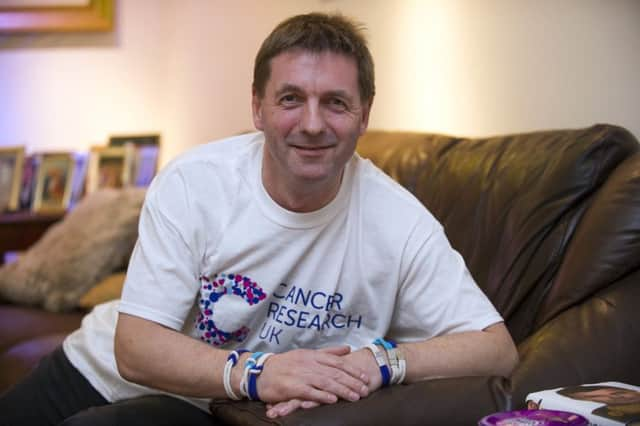Cancer research in Scotland to benefit from £1.8m funding grant


Researchers at the Cancer Research UK Beatson Institute in Glasgow are set to receive the money over the next five years as part of a £19m investment in a global project.
The funding for the ground-breaking initiative will come from Cancer Research UK’s Grand Challenge awards which were set up to revolutionise the prevention, diagnosis and treatment of cancer.
Advertisement
Hide AdAdvertisement
Hide AdThe Glasgow scientists are part of a team of researchers from Manchester, the US and the Netherlands who beat stiff international competition to secure the funding.
They will bring their world-leading expertise in bowel cancer to the pioneering project, which was selected by an international panel of experts from a shortlist of ten exceptional, multi-disciplinary collaborations from universities, institutes and industry across the globe.
Prof Owen Sansom, director of the Beatson, said: “This Cancer Research UK Grand Challenge funding will be transformative. It will allow us to work together with some of the best research groups from around the world and to do some really exciting and ambitious research to try and find an answer to this key question about early disease in cancer.”
Cancer Research UK’s Grand Challenge was established to help scientists attack some of the hardest, unanswered questions in cancer research.
The international project team is looking to understand why genetic faults only affect certain tissues.
If someone carries a potentially cancer-causing gene mutation, this fault can exist in every cell of the body, but only causes specific cancers, such as breast or skin.
The team is studying why this is the case, and will use this information to find ways to prevent or treat cancer in these organs.
Prof Sansom added: “My team have been trying to understand for a number of years why mutations in a gene called APC are really common in bowel cancer.
Advertisement
Hide AdAdvertisement
Hide Ad“With this £1.8m funding we will try to uncover why we only see the APC mutation in bowel cancer; why not breast cancer or skin cancer?
“If we can work out the reason this gene mutation doesn’t cause cancer in these other organs, then our hope is we might be able to find a way to make the bowel resistant to the APC mutation and prevent cancer from developing.”
Bowel cancer is the third most commonly diagnosed cancer in both men and women in Scotland with approximately 3,700 new cases diagnosed in 2016. The project is also supported through a partnership with The Mark Foundation for Cancer Research, based in New York. At present two in four people survive their cancer for at least ten years.
Cancer Research UK’s ambition is to accelerate progress so that by 2034, three in four will survive their cancer for at least ten years.
Dr Victoria Steven, Cancer Research UK spokesperson for Scotland, said: “Grand Challenge gives us the perfect opportunity to address complex questions and cross new frontiers in our understanding of cancer, to transform the lives of patients. People in Scotland have every right to feel proud of the world-class research taking place on their doorstep and of their fundraising efforts, which are helping to beat cancer.”
CASE STUDY: ‘I’m only here because of the work done in research’
The Scottish research has been welcomed by bowel cancer survivor Stuart Riddell from East Lothian, who celebrated five years since the end of his treatment for incurable cancer in December 2018. Father-of-three Mr Riddell was diagnosed with Stage 4 bowel cancer just before his 50th birthday in March 2013, after rapid weight loss and severe stomach pain over several months prompted him to visit his GP.
He endured a six-hour operation which successfully removed one tumour, followed by six cycles of chemotherapy then five weeks of combined radiotherapy and chemotherapy, which took nine months. Surgeons were unable to cut out the second tumour as it was too close to a major artery but regular check-ups showed no disease progression, and in December 2018 the PR consultant was told by doctors he was in “durable remission”.
Advertisement
Hide AdAdvertisement
Hide AdStuart said: “The reason I’m still here is because I responded well to the treatment, and that’s down to research. So, it’s fantastic to hear about this funding from Cancer Research UK to help more people beat bowel cancer in the future.”
